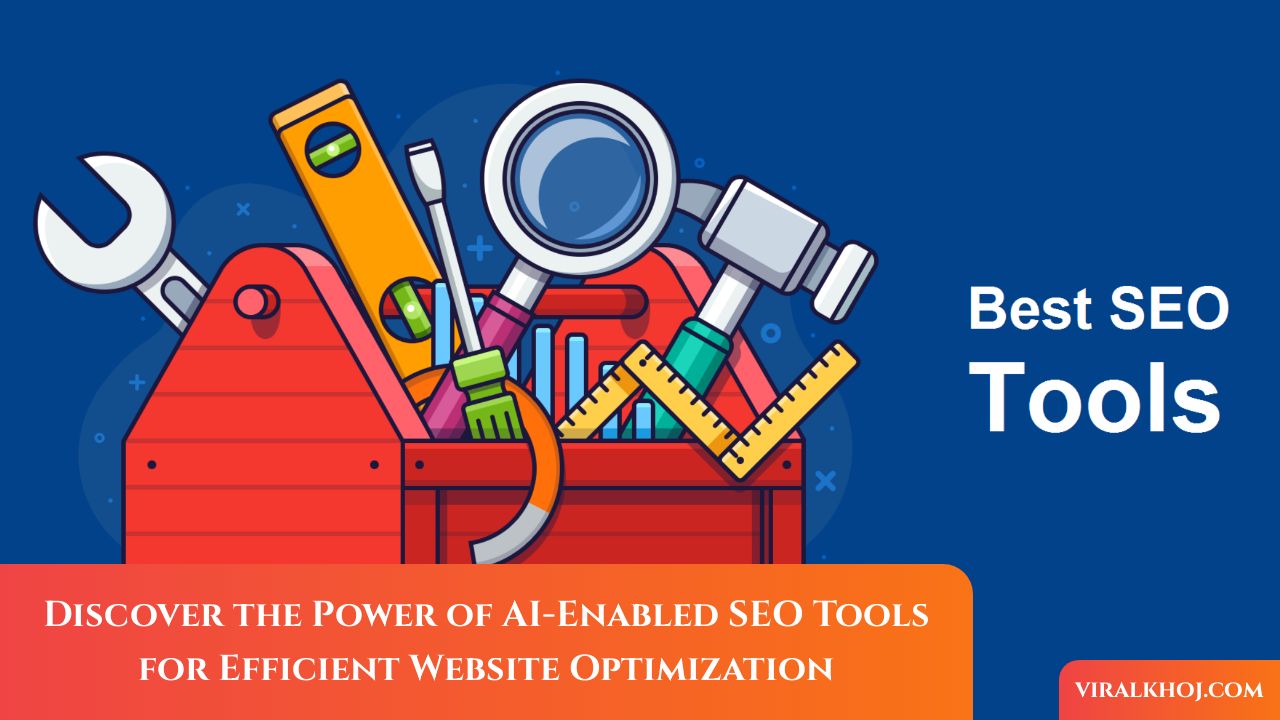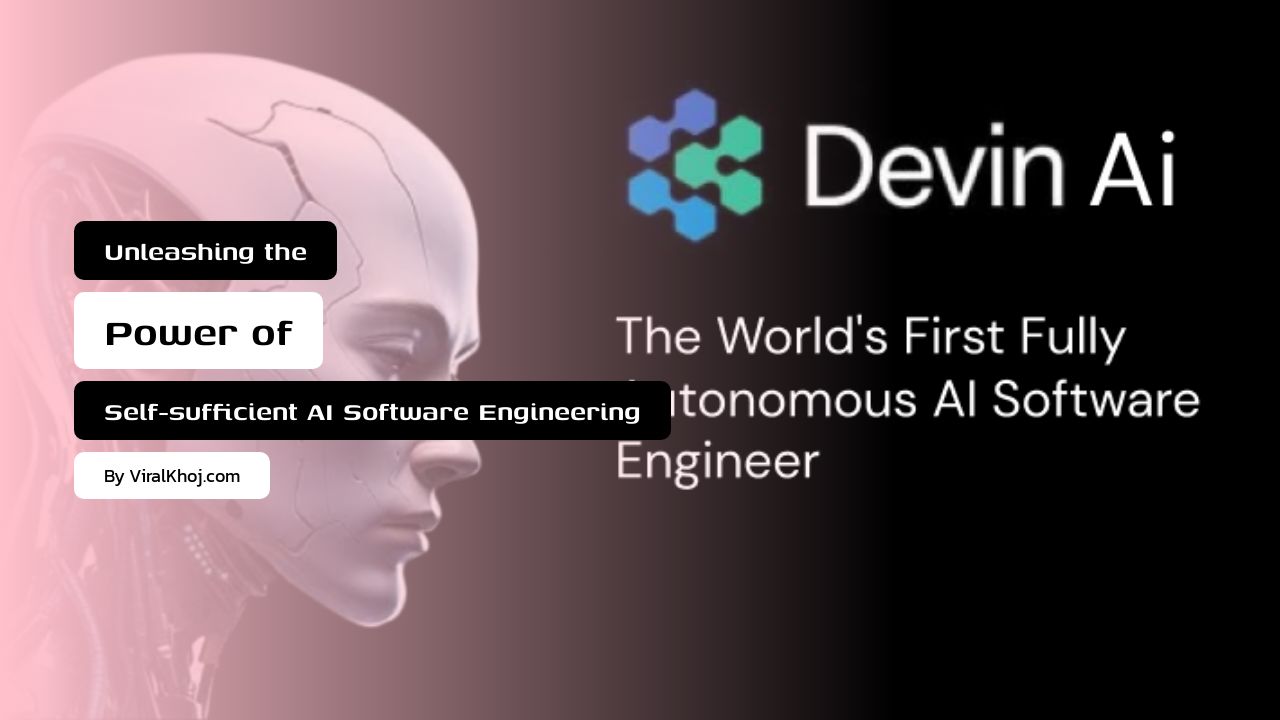The Impact of AI on SEO: How AI-Enabled Tools are Revolutionizing Website Optimization

The Impact of AI on SEO: How AI-Enabled Tools are Revolutionizing Website Optimization
In the era before the widespread adoption of artificial intelligence (AI), search engine optimization (SEO) tasks were manual and time-consuming. Optimizing a landing page, for example, could take hours of painstaking work. However, with the advent of AI, SEO specialists can now complete their tasks in a fraction of the time, allowing for more efficient use of their skills and expertise.
AI has brought about significant changes in the field of SEO, enabling us to become more efficient in various ways. It is important to note that AI is not a replacement for human expertise; rather, it works best when integrated with a humanized approach. This collaboration between AI and human intelligence results in a powerful synergy, where each side's strengths are leveraged for a win-win situation.
AI has revolutionized various aspects of SEO, including keyword research, competitor analysis, and content optimization. AI systems are capable of processing enormous amounts of data, providing valuable insights that improve SEO strategies and instill confidence in business decisions.
AI-Enabled SEO Tools for Increased Efficiency
There are several AI-enabled SEO tools available in the market that can significantly enhance website optimization. Let's explore some of these tools:
- Surfer SEO: Surfer SEO stands out as an all-in-one solution for keyword research, content optimization, and SERP analysis. It leverages natural language processing (NLP) to enhance on-page SEO and allows you to optimize your content in real-time while writing. Surfer SEO analyzes your competitors' keywords and content, runs it through an NLP tool, and recommends keyword usage frequency for your content. [1]
- Semrush: Semrush is a comprehensive SEO tool that covers all aspects of SEO strategy. Its core tools enable keyword research, on-page SEO improvement, competitor analysis, local SEO configuration, link building, and keyword tracking. It also features ContentShake, an AI-powered writing assistant that accelerates the development of SEO content. [2]
- Alli AI: Alli AI is an AI-powered SEO program that optimizes websites and increases their exposure in search engine results pages (SERPs). It seamlessly integrates with any CMS and optimizes every line of code on your website. It also offers Bulk Onpage Optimization, which provides site-wide optimization instructions and distributes code changes to specific pages. [3]
- Diib: Diib is an AI SEO tool that syncs with Google Analytics and uses powerful algorithms to present users with an easy-to-follow growth strategy. It provides in-depth research of your website, competitor websites, and industry benchmarks to help plan your online growth strategy. Its Answer Engine combines analytics data with a thorough examination of your website, competitor websites, and industry benchmarks to make recommendations for online growth. [4]
- Camp: Camp is a customized platform that improves SEO performance by creating high-performing SEO blog posts. It uses multiple language model solutions and models trained on SEO-ranked data to generate tailored content. Camp provides a customized approach, enabling businesses to create SEO-rich, custom-tailored content that resonates with their target audience. [7]
- NeuronWriter: NeuronWriter encourages better content delivery by combining competition analysis, NLP, and Google SERPs. It utilizes an AI writer driven by OpenAI's GPT model to automate writing and SEO optimization operations. NeuronWriter streamlines workflows by reducing the need to transition between applications through third-party interfaces like WordPress and Google Search Console. [5]
- WordLift: WordLift improves text by using metadata in a way that search engine algorithms, particularly Google, prefer. It transforms information into a language that search engines understand, increasing SEO equity. WordLift automates digital marketing tasks to enhance website visibility and includes a content recommendation system to convert readers into buyers by suggesting relevant products. [6]
- ScaleNut: ScaleNut is a SaaS platform for content intelligence that utilizes deep learning and AI to help find and generate relevant content for target audiences. With various templates and AI-powered editing, it simplifies content generation and improves writing quality. [8]
- SEOptimer: SEOptimer specializes in diagnosing SEO-related performance issues with websites or individual webpages. It offers tools for code minification, meta tags, keyword analysis, XML sitemaps, and more. It also includes tools for testing and assessing SEO elements such as favicons, font sizes, no index tags, canonical tags, SERP display, and keyword ranking. [9]
- SEO.ai: SEO.ai uses proprietary algorithms and Google SERP analysis to identify valuable keywords and develop optimized content. It requires minimal human effort and provides a significant boost to organic traffic. SEO.ai delivers data-driven insights through competitive analysis and helps create optimized content following SEO best practices. [10]
These AI-enabled SEO tools have revolutionized website optimization, making it more efficient and effective. By leveraging AI technology, businesses can gain valuable insights, optimize their content, and stay ahead of the competition in the ever-evolving world of SEO.
As AI continues to advance, we can expect even more innovative tools and techniques to enhance SEO practices and drive better results. It's crucial for businesses to embrace AI-enabled SEO tools and integrate them into their optimization strategies to stay competitive in the digital landscape.
References:


How to Make a Phone Call from Your Windows PC Using Your iPhone
14 Jul 2024
Navigating 2024’s Recruitment Trends: Top AI Tools for HR Professionals
11 Jul 2024
कैसे पता करें कि एक Photo पर कॉपीराइट है?
01 May 2024
एफिलिएट मार्केटिंग कैसे शुरू करें: सोते समय भी कमाएं पैसे
28 Apr 2024
एंड्रॉयड फोन पर ऐप्स को छुपाने के तरीके
21 Apr 2024